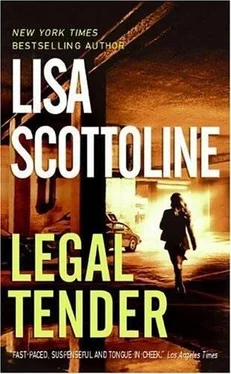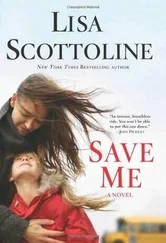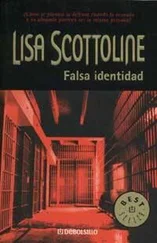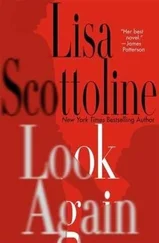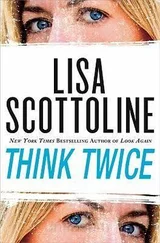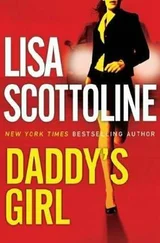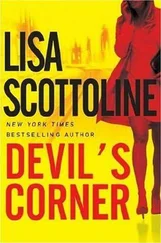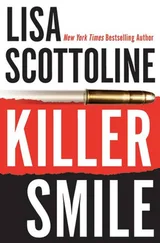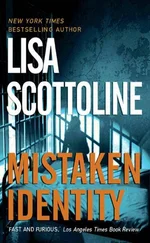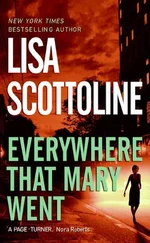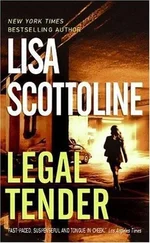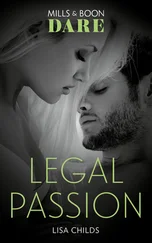I had to find her case file. I’d taken my clues about Mark’s killer as far as they could go, so I was working backward from Bill’s murder, betting on a hunch it was connected to Mark’s. And I needed to know more about Eileen to figure out Bill, so I started digging through the files on Celeste’s desk.
Ten minutes later, I had the file stuffed with the Tampax in my purse, and jumped into the elevator. It wasn’t until the steel doors slid open on the lobby floor that I realized I had no story to tell our septuagenarian Schwarzenegger. Why would I be leaving the party before Mister Celeste arrived?
“Linda,” he said, surprised, from behind the desk. “You leaving?”
“I have to go.” I walked quickly to the exit.
“But Mr. Celeste should be in any minute,” he said, rising slowly.
“Have to go. Have to hurry. Be right back. Forgot my… pliers.” I powered through the smudgy glass door without looking back.
I hit the sidewalk outside and tottered away in my stiletto heels, squinting in the hazy sun. The city was coming to life only sluggishly this Monday morning, but I walked in the shadows of the buildings in case any cops were around. I was all dressed up with nowhere to go. I needed a place to read Eileen’s file, but I couldn’t go back to my underground room until nightfall because there would be employees around during the day. Then I got an idea.
I walked quickly past the seamier blocks of Locust Street, slipped into the first Greek restaurant I could find, and ducked into the bathroom to unroll my skirt and wipe off my lipstick. I popped my sunglasses back on and left the bathroom, heading where everybody goes when they need to read quietly. The police would never look for me there, it was too public. I was there by the time it opened.
The Jenkins Memorial Law Library is frequented by only two types of lawyers in the legal caste system: Brahmins who use it to research the law of another state and the untouchables who can’t afford their own law library. This morning, Jenkins contained both extremes, and the best of times and the worst of times regarded each other warily over the marble busts. I avoided them all and crossed the pile rug to the metal stacks in the back where I found a deserted carrel. I settled in, kicked off my high heels, and began to read.
The file was a mess of yellow legal papers scribbled in a childish scrawl. Celeste had apparently conducted only a few interviews with Eileen, and his notes were filled with incomplete sentences: Grad HS. Cheerl. Drinking. Father in service. Throughout, in the margins and even across the notes, it read:
apple 35
orange 30
bread 100
Snickers-Fun Size (small) 150
Eggbeaters 150??? (check this)
toast; margarine 80
Baby Ruth-King Size,
but only half-?????
Celeste’s calorie-counting was far more meticulous than his record-keeping. It took me a full two hours to recreate his interview with Eileen, which revealed no clues anyway. The rest of the notes were phone numbers in Los Angeles and New York, with names like William Morris scratched next to them. Evidently not witnesses, but film and book agents. Celeste’s attempts to sell the story of Eileen’s miserable little life. I put the file away in annoyance and pulled out what I hoped would be the gold mine.
The audiotapes. Four plastic cassettes I assumed were the unabridged Eileen. They were unnumbered and unlabeled. I turned them over in my hand. I’d taken a chance swiping them, but so be it, I needed to hear what they said.
I gathered my purse and file from the carrel and prowled around until I found the library’s listening booth. It had a heavy glass window in the door and a tape recorder on a built-in desktop inside. I sat down, put on the earphones, and loaded one of the cassettes.
Eileen was giggling at something Celeste had said, and just the sound of it made me angry. That voice-high, careless, flirtatious. And dangerous, cunning. Eileen had murdered a man and put me solidly on the hook for it. I turned up the volume. The interview was in a question-and-answer format:
Q: Tell me about your relationships, Eileen. The relationships that formed your personality.
A: Only the hot stuff now, right? (Giggle, giggle)
Q: Right.
A: Well, Bill, of course, he wasn’t the first.
Q: Kleeb, you mean. Well, who was?
A: Oh, a boy from home. When I was, like, fourteen?
Q: That’s young.
A: Nah. Not for me. I was ready.
Q: Who was he?
A: Another farm boy. I just like farm boys, I guess.
Q: Why do you think that is?
A: Big muscles. Tattoos. No brains. (Giggle, giggle) I even got married, once upon a time.
Q: I didn’t know that.
A: Nobody does.
Q: When was that?
Christ. Barbara Fucking Walters. I tried to concentrate, but it wasn’t easy. I struggled to listen to this self-indulgent tripe, but I hadn’t slept all night. And I hadn’t had my coffee. It was criminal working conditions, no pliers and no caffeine.
A: When I was eighteen. He was twenty. An older man.
Q: Twenty? A regular Methuselah.
A: A what?
Q: Forget it. Go on about your marriage. It’s good background information for the character.
A: Do you really think it’ll be a movie-of-the-week?
Q: I wouldn’t be here if I didn’t. So go on, okay? I want to get the tapes to the agent right away.
A: Will I get a copy?
Q: (sighing) I’ll make one for you. Just tell the story, please.
A: Well, my husband, he was (unintelligible)-
Q: What was he?
A: He was… abusive. He used to hit me, when he drank.
Q: Really.
A: Uh… yes. The shit.
Q: Did you ever take pictures of it, like Polaroids?
A: No.
Q: Did you ever go to the hospital for it?
A: No.
Q: (disappointed) Well, how often did he hit you?
A: Once a week, or twice, for a long time.
Q: Then you divorced him. You had to raise yourself up and divorce him, right?
A: No I just left him. The lawyers weren’t no help. I got the court orders, one after the other, but he just kept comin’ back. Beatin’ me. There wasn’t nothin’ the courts could do about it. Half the time the police wouldn’t even come.
My head was beginning to pound. I rubbed my eyes to stay awake. The sadness in her story was lost on me. She was a victim, so she victimized. I accept no excuses for murder. An innocent man was dead at her hand and maybe Bill, too.
I shifted in my chair and my gaze fell upon a Daumier sketch on the wall. A lawyer slipping his hand into his client’s pocket or the other way around, but the glass over the print reflected something else. A figure. A man in the library stacks, in a dark suit jacket. He was bent over reading a book. I couldn’t see his head or face, but his back looked familiar. I held my head down to avoid being recognized.
Q: So you never even divorced him?
A: Nope.
Q: You’re married to him, now?
A: No. I heard he died. He got shot.
Q: (impressed) No shit. In a bar? Or by a gang or something?
A: No, no. A hunting accident. He always drank when he hunted, so did his buddies. Dumb shits.
Hunting. I flashed on the cabin in the woods. Bill’s cold body. Was there a connection? My eyes fell on the Daumier sketch. In the reflection, the hunched figure turned the page of his book. Who was he? Did he recognize me? Was he a cop? I tried to remember the cops I knew who worked plainclothes. I covered my face with my hand, like I was getting a headache, which I was.
Читать дальше
